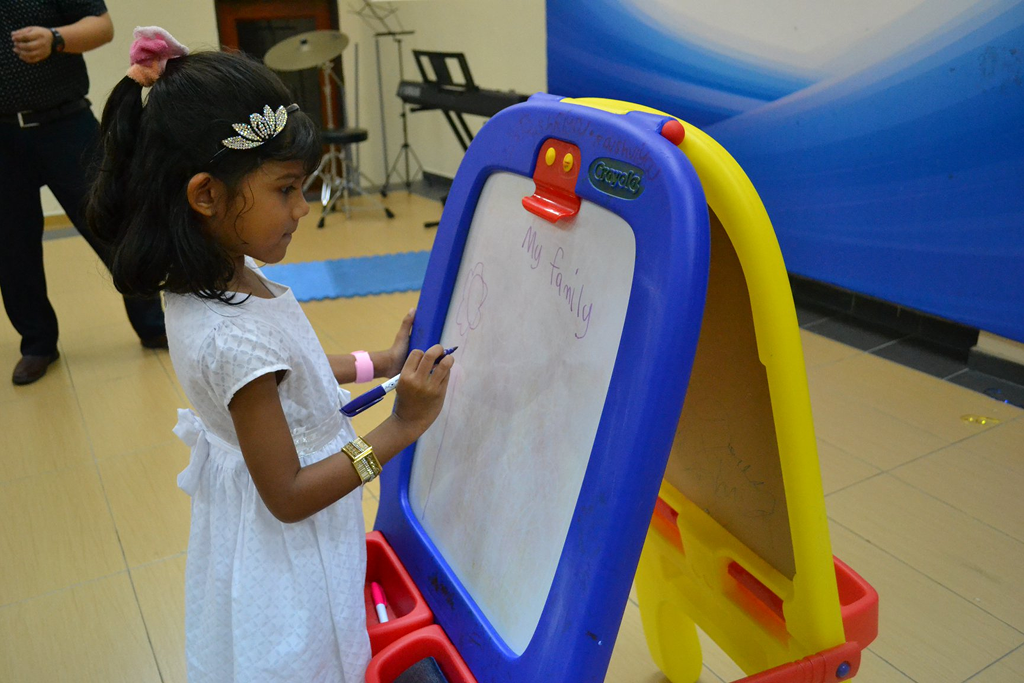Table of Contents
Starting school is one of the most exciting milestones in a child’s life. For parents in Malaysia, deciding when to enrol a child in preschool or kindergarten often brings questions about age, readiness, and the best environment for learning. Early childhood education in Malaysia is widely recognised as the foundation of lifelong success.
Whether you’re considering a local preschool, an international preschool in Malaysia, or one of the top 10 kindergartens in Kuala Lumpur, the timing matters.
At Regent International School Malaysia, admission procedures are designed to assess not just age but also a child’s readiness across multiple developmental areas, ensuring every child begins school with confidence.
Age Guidelines for Preschool & Kindergarten in Malaysia
Parents often ask: What age should my child start preschool in Malaysia?
According to the Ministry of Education:
- Playschool/Nursery: Ages 2–3 (optional)
- Preschool/Kindergarten (Lower): Age 4
- Kindergarten (Upper): Ages 5–6
- Primary School Admission: Age 7
While these serve as general guidelines, many schools—including Regent International School Malaysia—look at readiness indicators.
This ensures children entering preschool in Malaysia are not only old enough but also developmentally prepared to thrive.
Developmental Readiness Indicators for Preschool in Malaysia
Enrolling your child in kindergarten in Malaysia is not just about age. Childhood education experts suggest considering broader developmental milestones, including:
- Self-care & independence
- Social-emotional skills
- Communication & cognitive curiosity
- Physical and motor skills
These domains form the basis of early childhood education in Malaysia, and schools such as Regent support all areas of development to create well-rounded learners.
Self-Care & Independence: A Key Admission Factor
Kindergarten admission procedures in Malaysia often expect children to demonstrate basic independence, including:
- Using the toilet independently
- Feeding themselves
- Dressing with minimal help
- Following simple routines
At Regent International School Malaysia, early childhood teachers nurture these life skills daily, preparing children for a smoother transition into primary school.
Social-Emotional Readiness for Preschool Success
A child’s ability to adapt to a new environment is essential. Signs include:
- Willingness to separate from parents
- Playing and sharing with peers
- Following group rules and routines
- Expressing emotions with words
In international preschools in Malaysia, such as Regent, the environment encourages teamwork, empathy, and resilience—skills that last well beyond kindergarten.
Communication & Cognitive Curiosity: Early Learning Foundations
Language and curiosity are vital indicators of readiness. By preschool age, many children can:
- Follow instructions
- Speak in short sentences
- Ask questions
- Engage with stories and early literacy activities
At Regent International School Malaysia, lessons are designed to spark curiosity, helping children develop problem-solving skills and a love of learning.
Physical & Motor Skills for Kindergarten in Malaysia
Children should also be physically ready for active school environments. This includes:
- Gross motor skills (running, climbing, hopping)
- Fine motor skills (cutting, colouring, puzzle play)
- Hand-eye coordination
With well-equipped facilities, Regent International School Malaysia integrates physical activities into daily learning to support holistic childhood education.
Readiness Checklist for Parents
Here’s a parent-friendly checklist for preschool readiness in Malaysia:
✅ Independent in toileting and self-care
✅ Can separate from parents without distress
✅ Plays with peers and follows group rules
✅ Uses simple sentences and asks questions
✅ Recognises shapes, colours, and numbers
✅ Can run, climb, draw, and use scissors
If your child meets most of these, they are likely ready to begin preschool in Malaysia.
Preparing Your Child for Preschool or Kindergarten
If your child is not fully ready, here are some steps to prepare:
- Establish routines at home to mirror school schedules.
- Encourage independence in dressing, eating, and tidying up.
- Read together daily to build language and listening skills.
- Plan playdates for socialisation.
- Strengthen motor skills through drawing, Lego, or playground time.
Visit schools like Regent International School Malaysia to familiarise children with classroom environments.
Some parents even explore early childhood education courses in Malaysia to better understand child development and learning strategies.
Summary Table
| Indicators of Readiness | Details |
| Age | 4–6 years (preschool/kindergarten); 7 years for primary school |
| Self-Care | Independent toileting, eating, dressing, tidying |
| Social-Emotional | Separates from parents, interacts with peers, follows rules |
| Communication | Understands instructions, uses sentences, shows curiosity |
| Cognitive Curiosity | Asks questions, enjoys stories, recognises shapes/colours |
| Physical Skills | Gross motor (running, climbing); fine motor (drawing, cutting) |
Final Words
Determining when your child is ready for preschool or kindergarten in Malaysia means considering more than just age. Readiness involves self-care, emotional maturity, curiosity, communication, and motor development.
With the right environment, children develop confidence and a strong foundation for lifelong success.
At Regent International School Malaysia, our preschool and kindergarten programmes are carefully designed to nurture independence, social skills, and cognitive growth while maintaining a warm, caring atmosphere.
Ranked among the best Cambridge schools in Malaysia, Regent is committed to preparing children for both academic excellence and personal growth.
Book a campus tour, explore Regent International School Malaysia’s preschool and kindergarten programmes today. Connect with our admissions team or learn more about how Regent can help your child’s journey in early childhood education.
The right beginning makes all the difference—start it with Regent.






